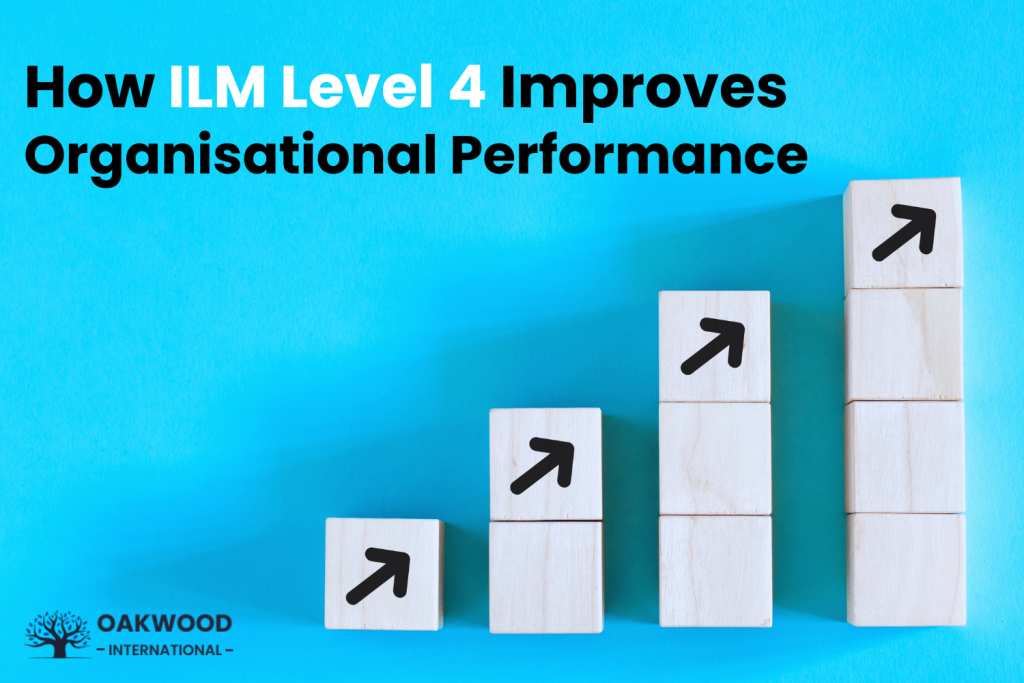Have you ever thought about what truly sets exceptional organisations apart from the rest? At the heart of it all lies one critical factor: leadership. Great leaders have the power to ignite passion, navigate challenges, and steer organisations toward remarkable success. What if you could become one of those leaders? ILM Level 4 offers the tools, strategies, and confidence to transform your leadership skills and make a lasting impact. Picture yourself leading a team that thrives under your guidance, driving innovation and achieving ambitious goals. Let’s explore how ILM Level 4 can revolutionise organisational performance.
Table of Contents
- Boost Organisational Performance with ILM Level 4
- Conclusion
Boost Organisational Performance with ILM Level 4
Let’s discuss how this ILM Level 4 inspires organisational success:
Fostering Proficient Leadership
ILM Level 4 promotes organisational performance by fostering robust leadership. This level emphasises the development of leadership styles that foster trust, confidence, and teamwork. Leaders cultivate the ability to modify their strategies according to the requirements of their team and the obstacles they encounter. Leaders develop a constructive work atmosphere that enhances productivity by understanding how to inspire people and elicit optimal performance.
Effective leadership includes the capacity to handle change. In the modern corporate era, companies constantly encounter fluctuations in market demands, technological advancements, and employee expectations. ILM Level 4 provides leaders with the necessary capabilities to navigate their teams through changes effectively, reducing disturbance and maintaining focus on collective objectives.
Enhancing Decision-Making Abilities
Leadership decisions can profoundly influence organisational performance. ILM Level 4 provides practical instruction in situational analysis, option evaluation, and informed decision-making. The level prioritises critical thinking and problem-solving, which are essential for addressing complex job difficulties.
With these improved decision-making capabilities, leaders can tackle problems before they intensify, distribute resources efficiently, and establish practical and aspirational goals. The result is a more agile organisation capable of responding to challenges and opportunities with confidence.
Improving Team Interactions
An effective team is the basis of a successful company. ILM Level 4 offers insights into proficient team management, including dispute resolution, delegating, and the promotion of cooperation. Team members acquire skills to cultivate an inclusive atmosphere where each member feels appreciated and acknowledged.
Leaders use these talents to cultivate cohesive teams that operate effectively towards shared objectives. Enhanced communication and reciprocal respect across teams increase work satisfaction, less employee turnover, and superior overall performance. When workers see support and empowerment, they are more inclined to exceed expectations in their employment.
Enhancing Organisational Productivity
Organisational success is linked to productivity, and ILM Level 4 directly enhances this dimension. Leaders educated at this level acquire the skills to identify inefficiencies and devise methods to rectify them. Whether optimising processes, prioritising activities, or ensuring optimal resource allocation, these abilities enable businesses to function at their highest capacity.
Alongside process enhancements, the level instructs executives on cultivating a culture of responsibility. Establishing explicit objectives and delivering constructive criticism motivates the staff to take responsibility for their tasks. This responsibility enhances individual performance and adds to the organisation’s overall success.
Focusing on Long-Term Goals
Although daily operations are crucial, sustained organisational effectiveness necessitates emphasising long-term objectives. ILM Level 4 equips leaders with strategic planning instruments for aligning their team’s endeavours with the organisation’s goal. This alignment ensures that all individuals pursue common goals, fostering a feeling of purpose and direction.
The level underscores the need to track progress and modify plans as necessary. Leaders acquire the ability to evaluate results, pinpoint areas for improvement, and modify their strategies to remain aligned with objectives. This proactive strategy enables businesses to attain their objectives with greater efficiency and effectiveness.
Enhancing Organisational Culture
A robust organisational culture is a fundamental catalyst for performance. ILM Level 4 emphasises the significance of leaders in cultivating and sustaining this culture. Team members explore methods to develop ideals, cultivate trust, and promote cooperation across all organisational levels.
By fostering a culture that emphasises development, creativity, and respect, leaders cultivate an atmosphere conducive to employee flourishing. This favourable atmosphere not only draws exclusive talent but also aids in retaining current employees, hence diminishing recruiting and training expenses. An inspired and involved staff can achieve outstanding outcomes, enhancing the sustained success of the organisation.
Conclusion
Whether an emerging leader or an experienced manager, this level can help you use your full potential and take your organisation to new heights. If you are looking to enhance your leadership skills and drive organisational performance, Oakwood International offers exceptional support through ILM Level 4. It ensures you gain valuable insights they can apply immediately in their roles.
Cassia Rowley is the mastermind behind advertising at The Bad Pod. She blends creativity with strategy to make sure ads on our site do more than just show up—they spark interest and make connections. Cassia turns simple ad placements into engaging experiences that mesh seamlessly with our content, truly capturing the attention of our audience.


